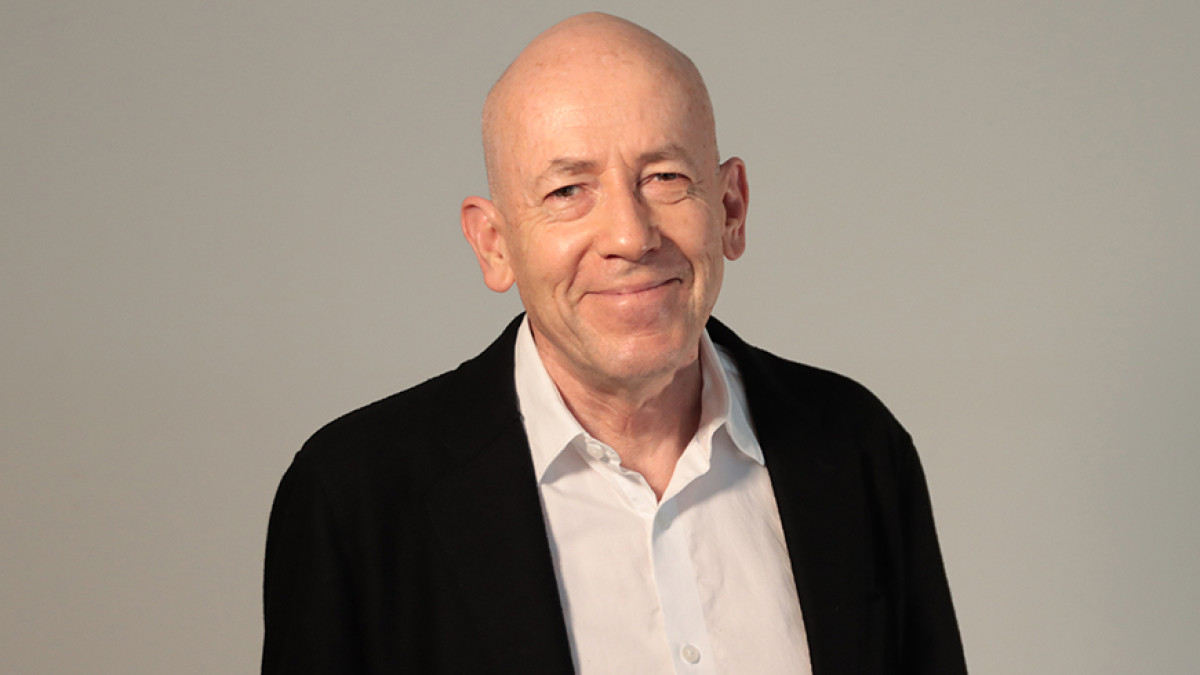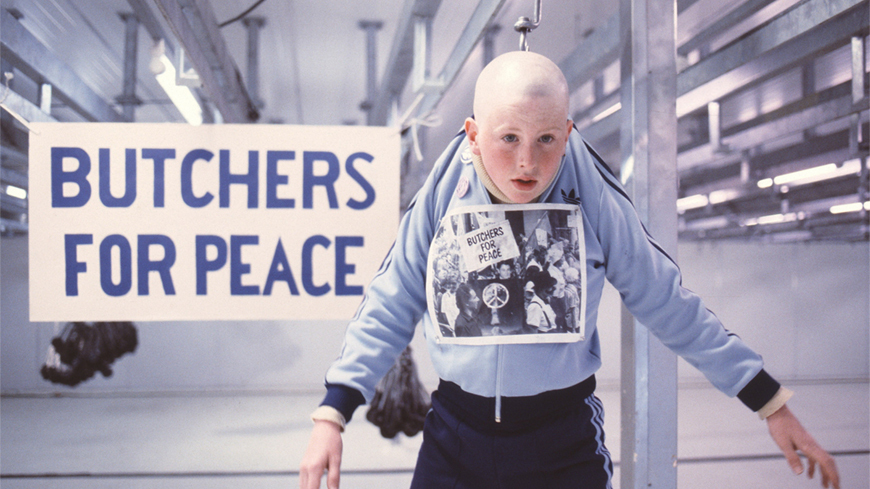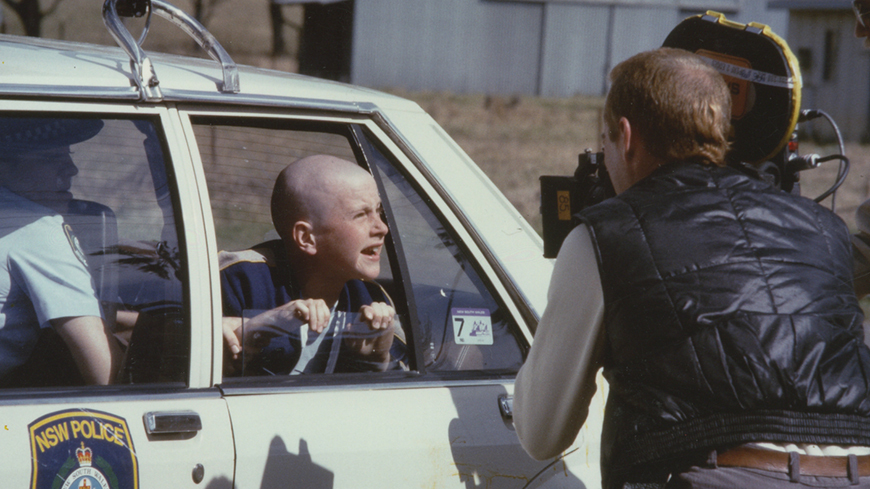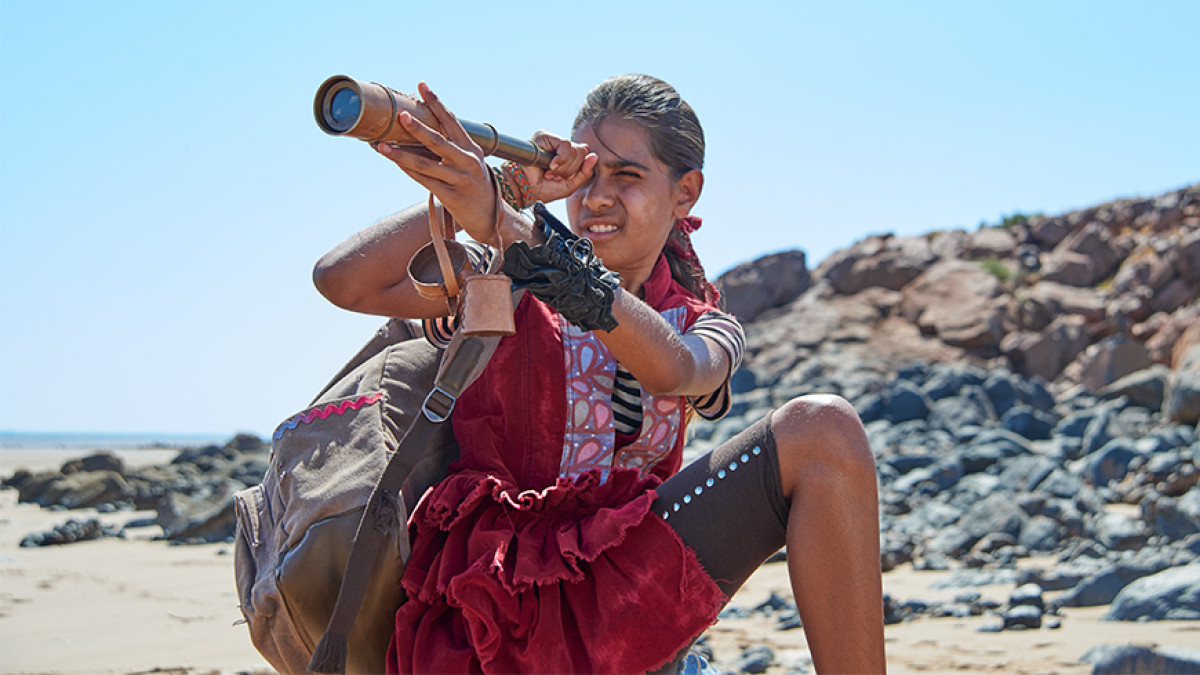ACTF News

Morris Gleitzman is one of Australia’s bestselling children’s authors. He has more than 40 books to his name, including Blabber Mouth, Misery Guts, Two Weeks with the Queen, the endearingly titled Bumface, and the series Once, Then, After, Soon, Maybe, Now and Always. His books have been published in more than 20 countries.
But before he was a novelist, Morris was a screenwriter. He’d been working primarily on scripts commissioned by the ABC when, in 1983, he was one of a selection of writers approached by the Australian Children’s Television Foundation (ACTF) to develop ideas for an innovative new anthology series, eventually titled Winners.
The writers were tasked with creating a contemporary drama which dealt with important, relevant issues. Morris created the screenplay for The Other Facts of Life, one of eight concepts to be turned into telemovies.
“[Winners] was a delightful opportunity for me because although I'd written a lot of screen stuff – everything from TV comedy to TV education to some movie screenplays – it all tended to be commissioned for a very particular purpose,” Morris said.
“When the Winners opportunity came along, the brief was to write an original one-hour screenplay which had a young character at its centre, but ideally touched to some degree on family life, but apart from that, the brief was completely open, and that was a wonderful opportunity. It came at just the right time for me because I'd been very happy working for about 10 years in a more tightly commissioned environment. But I was really now at the stage where I was keen to try and tell some of my own original stories - and that's exactly the opportunity I was given with Winners.”

The Other Facts of Life tells the story of Ben, a young boy less concerned with the ‘facts of life’ than the plight of babies starving in Africa and the conditions of battery hens. He starts a one-man crusade to bring attention to worldwide injustices.
Morris says it was his first opportunity to explore the transformative stage of life where a child is on the cusp of adolescence – a period of time that had fascinated him since his own childhood, and has been a theme through all his work since.
“I like the notion that at this time of discovery, this precious time we all have in our lives - and Ben's right in the middle of it in the story – it’s that point where, if we've been lucky, we've had our earlier childhood informed by loving, caring adults… we hear their versions of the information we want with opinions and worldviews attached. And up to a certain age, we pretty much take it as gospel. Then there's that wonderful few years where we start thinking independently.
“People have often said to me, why are all my main characters around 10, 11 years of age? And it took me a long while to twig that I think it's because it’s this small part of our lives where we really start to think independently and is such an exciting time.
“I think for many of us they are our best years for really developing our own personal moral landscapes, quite free from some other very necessarily self-interested matters. It's a precious time, and I love the time I spend in my imagination with young characters who are negotiating that period of their lives, becoming aware of the opportunities and challenges and making of it what they will. I also love the idea that a lot of young people who are in that stage of their lives are making my stories a part of that process.”

The Other Facts of Life went on to win an AWGIE Award for Best Original Children’s Film Script. It would also change the trajectory of Morris’ career – and his life. Along with the other Winners screenwriters, Morris was asked to adapt his screenplay into a novel.
“I hadn't ever really planned to write a novel,” Morris said. “It was something that fascinated me as a reader from early childhood: all of my creative inspirations and role models were authors of books rather than screenwriters. I got into screenwriting because I loved screen culture, but when I think of the individuals who've inspired me, they have tended to be authors. But I think in the early years of my writing career, I just assumed that with a young family to support, writing books was probably not going to give me the sort of return that I needed. So [this] was the perfect opportunity.”
Morris said he loved the experience of writing a novel and the extra level of control it allowed him over his own idea and vision.
“On every day of a shoot, things happen – unforeseen things, logistical things, human things that mean that in all sorts of subtle ways a story gets changed or it ends up not exactly as the originating writer had envisaged it,” he said.
“What I quickly discovered was a magic zone where I could control everything - the weather, the catering. I'm not wanting to sound like a total control freak on the public record, but I guess in the nicest possible way, that's what appealed to me. One day I could hear the rain hammering down outside, and I knew that that was going to be causing problems on location. But for me, I was able to continue pursuing my particular vision for this story unabated.”
After The Other Facts of Life was published, Morris went back to screenwriting. But years later, that first novel led to an opportunity to pursue a full time career as an author.
“I'd been at a conference in the US… and sitting next to me was a woman called Anne Wood, an English TV producer,” Morris said. “I had a copy of The Other Facts of Life in front of me, and she picked it up and said, ‘can I borrow this and read it?’ And she came back the next day and said, ‘I think this is great, and if I can keep this copy, I'd like to give it to a publisher or an editor friend of mine in London.’
“Several months later, I got a letter from Blackie and Son, venerable publishers of children's books in London, since bought by Penguin. And the editor basically said, ‘we've read The Other Facts of Life, and we'd like to commission you to write an original novel for young people. It was a very exciting possibility, particularly because the book would also be published in the UK… [this] became my book, Two Weeks with the Queen, which was also a very important part in showing me that I could perhaps make a go of being a children's author because it was fortunately well received.”
Morris says he’s incredibly grateful for where Winners led him and proud to have been a part of the series.
“I think really [Winners] was a rare and precious piece of screen content… certainly back in the 80s there wasn't a lot of children's television that was bringing some of the more challenging aspects of real life to [the child audience] in such an uncompromised way, and trusting that they could engage with the characters,” Morris said.
“The notion of a 10-year-old boy being self-radicalized to the degree that Ben is - for some parents, the thought that this might in some way inspire their kids to go along that path might have made some parents feel a bit anxious. But nonetheless, these well-made, full of integrity films were available for generations of young people to see at exactly the time when the films had the potential to really help and inform young people in these magic years as they're developing a sense of what might be possible for them in the immediate future and the longer future for them in their own lives. I think that's an incredibly valuable role that a TV series can play.
“Television for young people does deliver now much more than it did 40 years ago. And I think series’ like Winners and other similar work that was being done in other parts of the world at the time were crucial in this evolution of what's possible and available for young viewers on their small screens.”



